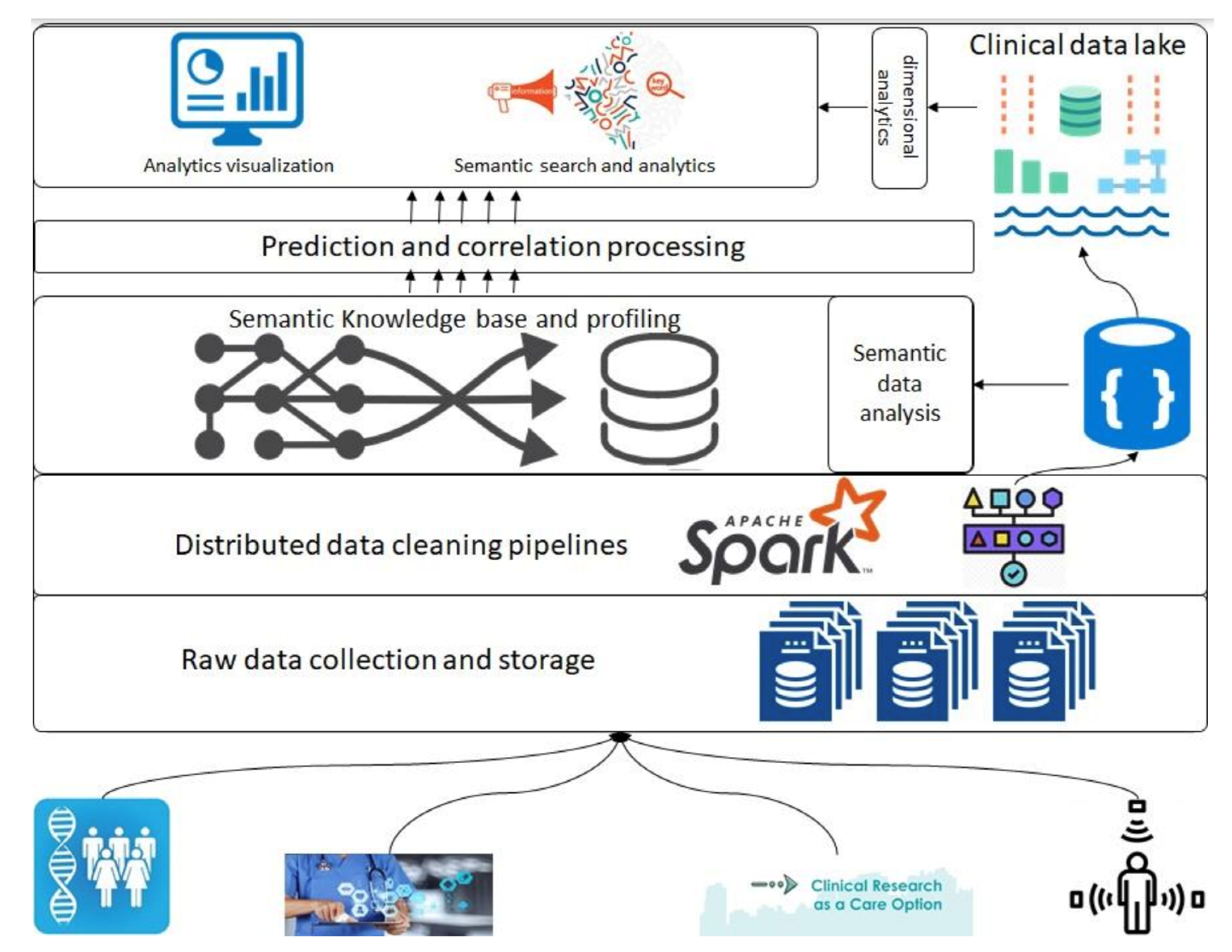Difference between revisions of "Template:Article of the week"
Shawndouglas (talk | contribs) (Updated article of the week text) |
Shawndouglas (talk | contribs) (Updated article of the week text) |
||
| Line 1: | Line 1: | ||
<div style="float: left; margin: 0.5em 0.9em 0.4em 0em;">[[File: | <div style="float: left; margin: 0.5em 0.9em 0.4em 0em;">[[File:Fig1 Siddiqi Healthcare23 11-12.png|240px]]</div> | ||
'''"[[Journal: | '''"[[Journal:FAIR Health Informatics: A health informatics framework for verifiable and explainable data analysis|FAIR Health Informatics: A health informatics framework for verifiable and explainable data analysis]]"''' | ||
The | The recent [[COVID-19]] [[pandemic]] has hit humanity very hard in ways rarely observed before. In this digitally connected world, the [[health informatics]] and [[Medical research|clinical research]] domains (both public and private) lack a robust framework to enable rapid investigation and cures. Since data in the healthcare domain are highly confidential, any framework in the healthcare domain must work on real data, be verifiable, and support reproducibility for evidence purposes. In this paper, we propose a health informatics framework that supports data acquisition from various sources in real-time, correlates these data from various sources among each other and to the domain-specific terminologies, and supports querying and [[Data analysis|analyses]] ... ('''[[Journal:Guideline for software life cycle in health informatics|Full article...]]''')<br /> | ||
''Recently featured'': | ''Recently featured'': | ||
{{flowlist | | {{flowlist | | ||
* [[Journal:Guideline for software life cycle in health informatics|Guideline for software life cycle in health informatics]] | |||
* [[Journal:Development of an integrated and comprehensive clinical trial process management system|Development of an integrated and comprehensive clinical trial process management system]] | * [[Journal:Development of an integrated and comprehensive clinical trial process management system|Development of an integrated and comprehensive clinical trial process management system]] | ||
* [[Journal:A web application to support the coordination of reflexive, interpretative toxicology testing|A web application to support the coordination of reflexive, interpretative toxicology testing]] | * [[Journal:A web application to support the coordination of reflexive, interpretative toxicology testing|A web application to support the coordination of reflexive, interpretative toxicology testing]] | ||
}} | }} | ||
Revision as of 19:02, 30 October 2023
"FAIR Health Informatics: A health informatics framework for verifiable and explainable data analysis"
The recent COVID-19 pandemic has hit humanity very hard in ways rarely observed before. In this digitally connected world, the health informatics and clinical research domains (both public and private) lack a robust framework to enable rapid investigation and cures. Since data in the healthcare domain are highly confidential, any framework in the healthcare domain must work on real data, be verifiable, and support reproducibility for evidence purposes. In this paper, we propose a health informatics framework that supports data acquisition from various sources in real-time, correlates these data from various sources among each other and to the domain-specific terminologies, and supports querying and analyses ... (Full article...)
Recently featured:










